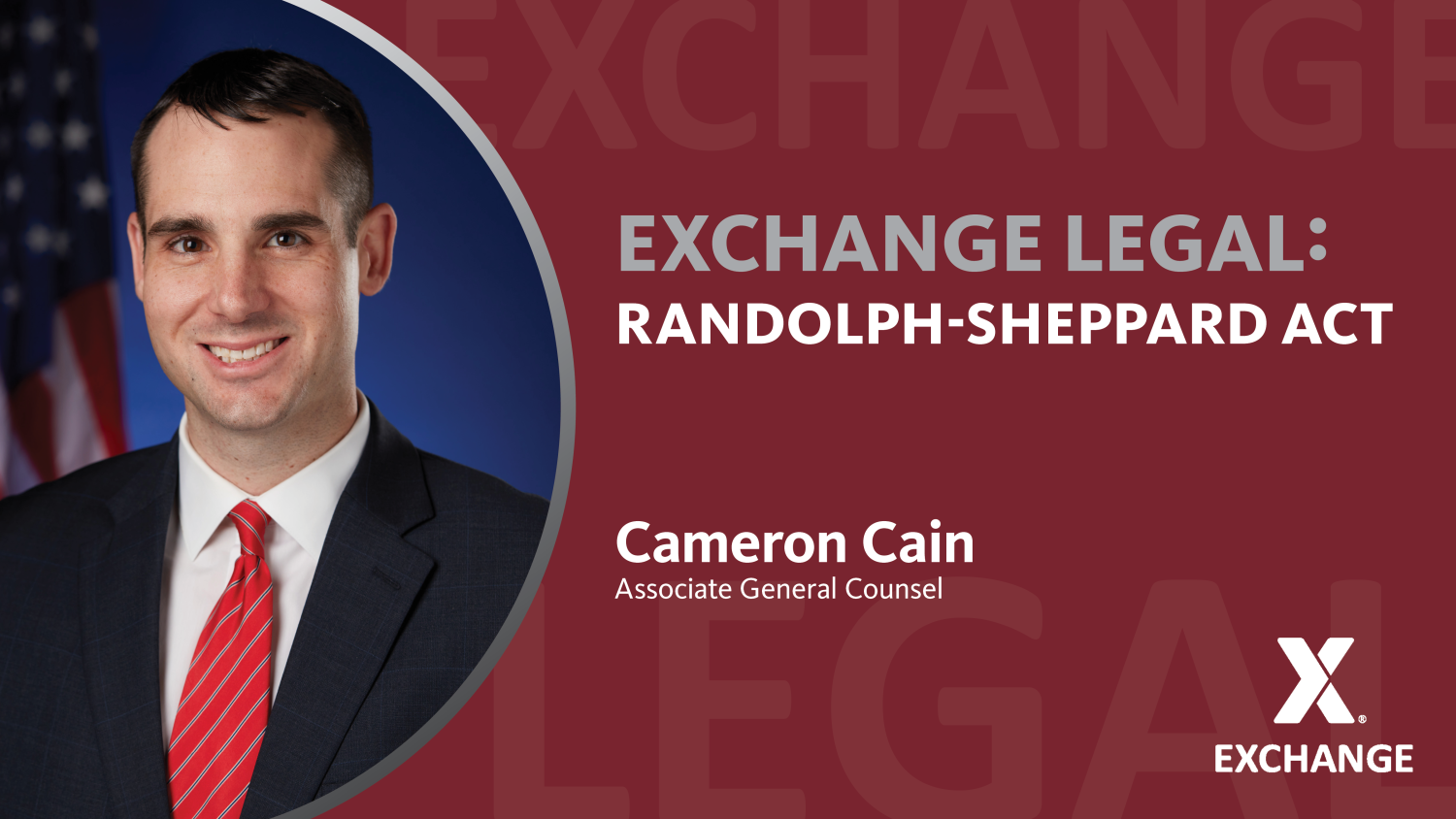The Randolph-Sheppard Act: What it is and What it Means to You

You may have heard the term the “Randolph-Sheppard Act” while coordinating Exchange vending machines with your installation. Or you may have heard directly from a State Licensing Agency (SLA) handling vending on behalf of blind vendors. Here is a general overview of the RSA:
What is the Randolph-Sheppard Act? It was created in 1936 when it was enacted by Congress and signed into law by President Franklin D. Roosevelt. The main politicians leading the charge on the RSA were then-Rep. Jennings Randolph from West Virginia and Sen. Morris Sheppard from Texas. The RSA was amended in 1974 with the help of Randolph, who became a senator in 1958. The main reason the RSA was signed into law was to give economic opportunities and employment to the blind in the United States. The RSA gives blind vendors priority to operate vending on federal property in certain situations as discussed below.
Where is there information on the RSA? The Department of Defense (DoD) rules and policies governing the RSA are found in Department of Defense Instruction (DoDI) 1125.03. The Air Force incorporates the DoDI into their instruction in DoDI 1125.03_AFI 34-124 and the Army’s policies and rules are found in Army Regulation (AR) 210-25.
What agencies are tasked with managing the RSA? The Department of Education (DoE) has been tasked at the federal level with implementing the RSA. The DoE grants authority to each state to manage and run their own services for the blind vendors through SLAs. Each state will have an SLA to run the RSA program for the blind vendors and advocate on their behalf, although each state may have a different name for their SLA.
How does the RSA apply to the DoD and the Exchange? Key takeaways from the RSA and its application to Department of Defense property provide parameters that trigger priority for the blind vendors to set up and run vending in certain situations:
- Any DoD component-acquired (purchased, rented, leased or constructed), substantially altered, or renovated building is required to have one or more satisfactory sites for a blind-operated vending facility.
- The requirement to provide a satisfactory site shall not apply when there are fewer than 100 federal civilian employees in the building during normal working hours or when the building contains fewer than 15,000 square feet to be used for federal government purposes and the federal government space is used to provide services to the general public.
- The vending income sharing requirements do not apply to income from vending machines operated by or for the military exchanges or ships’ store systems.
- Installation commanders, not the Exchange, decide whether and where blind vendors go. Therefore, it is important for Exchange personnel at each installation to work through the command teams and their staffs.
Work with your installations and command teams to ensure Exchange primacy is upheld while respecting the priority of the blind vendors. If there are any specific questions or concerns about the RSA at your installation, please coordinate with Exchange Policy; Services & Food Directorate; and the Office of the General Counsel. For additional information, email Cameron Cain, Associate General Counsel, cainc@aafes.com.

